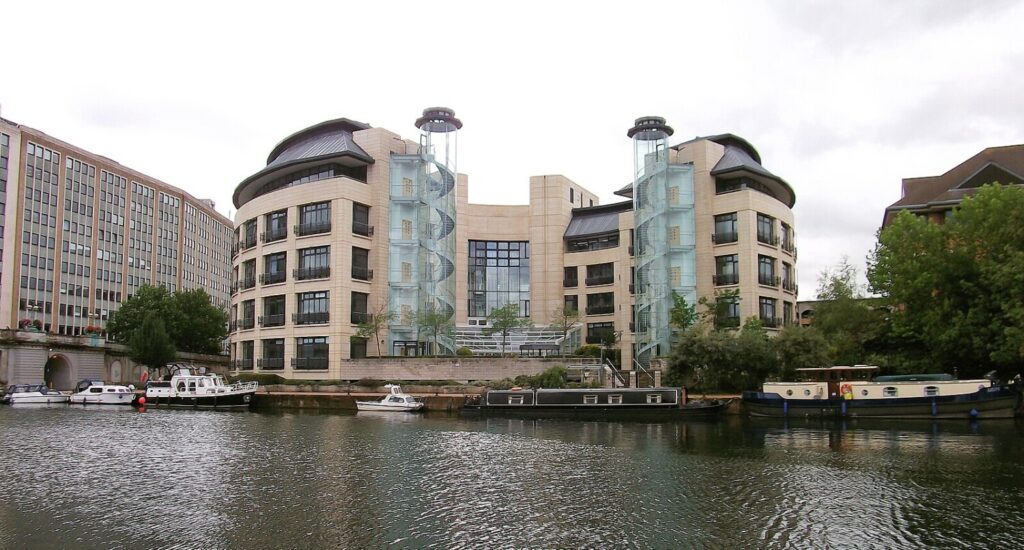A Melting Arctic: What Does It Mean for the World?
When people are suffering from more frequent floods and wildfires around the world this summer because of a warming climate, there is a place that is bearing the brunt – the Arctic. The Arctic warms two times faster than the rest of the world. Some estimates even say that sea ice would completely disappear as soon as in a decade. This summer, the sea ice minimum reached the second-lowest on record. As the Arctic is becoming more and more accessible for humans, what will a melting Arctic entail for the Arctic ecosystem, the local economic development, and geopolitics in this region? And how will it affect the great power dynamics? Will it trigger a next round of world power competition or will it be a good example of international cooperation? Good or bad, the Arctic will give us a snapshot of what a warming globe will look like.
Unleashed Natural Resources and Endangered Animals
The ecosystem of the Arctic is fragile. Research showed that global warming has made the living conditions of indigenous animals pretty harsh. Higher temperatures caused a decreased amount of phytoplankton and zooplankton, which is the base of the Arctic food chain. Small fish will rely on those plankton and large animals prey on smaller ones. As food becomes less available, heartbroken pictures like stranded polar bears starving for food will be a cruel reality. While this warming trend is a disaster for Arctic animals, it unleashes rich natural resources for humans. As of 2002, the Arctic accounted for about 10% of global oil production and 25% of natural gas. And these figures only represented production data, not to say the proven and undiscovered reserves that were inaccessible but have the potential to be released as the warming climate makes it easier to access the region. In addition to fossil fuels, rare earth metals, fisheries and forestry are all presenting lucrative opportunities for nations.
Local Development at the Expense of Local Life
The potential market of natural resources in the Arctic leads to business operations and economic development in this region. Currently, the Arctic region exploitation is mainly conducted by big oil and gas companies like BP, Shell, Exxon Mobile, among others. On the one hand, those big companies may be more experienced in drilling business; on the other hand, because of their control of the market, they could be powerful enough to influence policies that will be good for their business but bad for the environment and local people. In June 2020, oil spill tragedy happened in the Siberian city of Norilsk. The powerful company Nornickel that was responsible for this accident concealed its misconduct and it was a whistleblower that put this underestimated scale of the spill in the spotlight. It turned out that people living in Norilsk have long suffered from acid air and polluted water because of the powerful control of this area and its unregulated operation process by this giant company Nornickel. Therefore, as firms extracting natural resources and local government hoping to make economic progress may benefit from this region, there exists the risk of sacrificing local people’s lives and worsening the already damaged ecosystem as well.
Geopolitics and National Security Concerns
Geopolitics plays a big role in determining the future development pattern of the Arctic. While eight Arctic States are still dealing with their land claim disputes, other nations like China begin to look at the potential shipping routes. Two main routes, the Northeast Passage through Canada and the Northern Sea Route via Russia will fundamentally shorten the time needed for international trade by sea. But this also comes with national security concerns. While the U.S. and other countries are trying to prove its shipping rights in those two sea routes, Canada and Russia insist that this is their internal territory. Besides, the deployment of NATO and the increasing military bases built by Russia in this region demonstrate the preparedness of Arctic states to confront with each other.
Arctic Governance is the Key to A Successful Development Pattern
The current situation of the Arctic poses a multilayer problem ranging from environmental protection to economic development and to national security concerns. An ideal development of the Arctic requires a balanced approach, utilizing the resources and shipping routes but also protecting and preserving the vulnerable lives there. At the same time. Countries must build trust among each other for peaceful development. This can be done by creating an effective way of Arctic governance. There is no one comprehensive organization to manage issues in the Arctic. The Arctic Council is so far the best-known platform. However, its focus is on environmental-related problems and research and rescue. And those different institutions lack communication with each other, causing inefficiency and confusion.
In a word, to avoid resources race and conflicts in the region, nations, both Arctic states and others who are ready to seek economic opportunities in this region need to come together and figure out a constructive way of building the Arctic. Considering the complexity of this region, a comprehensive forum is needed. Such a platform needs to acknowledge that most of the Arctic area is not a global commons. The Arctic states own most of the region. However, the platform also needs to admit that changes in the region will have a profound impact on the ecosystems of other countries. Thus, the Arctic states are responsible for the healthy development in the region and should invite other states for talks and cooperation. Disputes, distrust and dishonesty in the Arctic may only benefit a few in the short term, but a healthy and peaceful development will benefit all in the long run.
References
Council on Foreign Relations. 2020. International Cooperation On Climate Change. [online] Available at: <https://www.cfr.org/conference-calls/international-cooperation-climate-change> [Accessed 21 August 2020].
Council on Foreign Relations. 2020. Arctic Governance: Challenges And Opportunities. [online] Available at: <https://www.cfr.org/report/arctic-governance> [Accessed 21 August 2020].
Ilyushina, M., 2020. The Russian Whistleblower Risking It All To Expose The Scale Of An Arctic Oil Spill Catastrophe. [online] CNN. Available at: <https://www.cnn.com/2020/07/10/europe/arctic-oil-spill-russia-whistleblower-intl/index.html> [Accessed 21 August 2020].
Lindholt, L., n.d. Arctic natural resources in a global perspective. The Economy of the North, [online] Available at: <https://www.ssb.no/a/english/publikasjoner/pdf/sa84_en/kap3.pdf> [Accessed 21 August 2020].
Nordea, 2017. Key Companies Having Business Operations In The Arctic. [online] Available at: <https://insights.nordea.com/wp-content/uploads/2019/02/Analyses-of-Key-Companies-having-Business-Operating-In-the-Arctic_0.pdf> [Accessed 21 August 2020].



